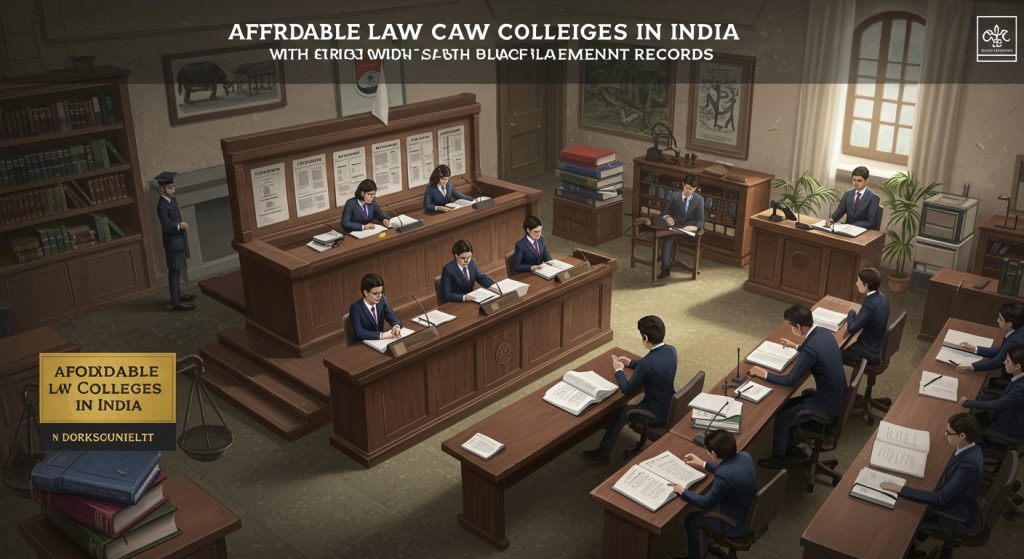Navigating the path to law school in the USA involves a crucial decision: choosing between public and private colleges. The legal landscape is evolving, demanding not only strong academic foundations but also specific skill sets. Public universities often offer lower tuition and diverse student bodies, potentially providing exposure to a wider range of perspectives crucial for legal reasoning. Conversely, private institutions may boast smaller class sizes, specialized programs. Robust alumni networks, offering enhanced networking opportunities vital for career advancement. Evaluating factors like LSAT scores, GPA requirements, financial aid availability. Specific legal specializations offered becomes essential. Understanding the nuanced differences in resources and opportunities afforded by each type of institution is paramount to making an informed choice that aligns with individual career aspirations in the competitive legal field.

Understanding the Landscape: Public vs. Private Law Schools
Choosing the right law school is a pivotal decision that can significantly impact your legal career. One of the first major choices you’ll face is whether to attend a public or a private institution. While both offer Juris Doctor (JD) programs and equip students with the foundational knowledge to practice law, they differ significantly in terms of cost, funding, class size, faculty resources. Overall educational philosophy. Understanding these differences is crucial to making an informed decision that aligns with your academic goals, career aspirations. Financial capabilities.
Public Law Schools: These institutions are typically state-funded and are often part of a larger state university system. Their primary mission is to serve the residents of their state by providing affordable access to quality legal education. As such, they often prioritize admitting students from their home state and offer lower tuition rates to in-state residents.
Private Law Schools: Private law schools, on the other hand, are not funded by the government and rely primarily on tuition revenue, endowments. Private donations. This independence allows them greater flexibility in setting tuition rates, admitting students from across the country and the world. Shaping their curriculum. They often have smaller class sizes and a higher faculty-to-student ratio compared to public institutions.
Tuition and Financial Aid: The Cost Factor
The most significant difference between public and private law schools often boils down to cost. Public law schools generally offer lower tuition rates, especially for in-state residents. This is because state taxpayers subsidize a portion of the educational expenses for these students. Private law schools, lacking this public funding, typically have higher tuition rates that can be a substantial financial burden.
But, cost isn’t the only factor to consider. Both public and private law schools offer financial aid packages to help students finance their legal education. These packages can include scholarships, grants. Loans. While private schools may have higher sticker prices, they sometimes offer more generous need-based or merit-based scholarships to attract top students. It’s essential to research the financial aid policies of each school and compare the total cost of attendance after accounting for scholarships and grants.
To illustrate the potential cost difference, consider the following hypothetical scenario:
| Factor | Public Law School (In-State) | Private Law School |
|---|---|---|
| Annual Tuition | $30,000 | $60,000 |
| Scholarships/Grants | $5,000 | $20,000 |
| Net Tuition Cost | $25,000 | $40,000 |
| Total Cost (3 Years) | $75,000 | $120,000 |
This example highlights the importance of considering financial aid packages when evaluating the affordability of different law schools. While the private school has a higher tuition rate, the larger scholarship significantly reduces the net cost.
Curriculum and Specialization: Tailoring Your Legal Education
The curriculum offered by public and private law schools can vary depending on the institution’s mission, resources. Faculty expertise. Generally, both types of schools cover the core areas of law, such as constitutional law, contracts, torts, criminal law. Property law. But, they may differ in their emphasis on specific areas of law and the availability of specialized programs or clinics.
Public law schools often have strong programs in areas of law that are relevant to their state, such as environmental law, natural resources law, or state constitutional law. They may also offer clinics that provide legal services to underserved communities in their state. Private law schools, on the other hand, may have more diverse program offerings and specialized centers focused on international law, corporate law, or intellectual property law. The University of Virginia School of Law, for example, a top-ranked public institution, offers specialized programs in areas like public service and appellate litigation.
When choosing a law school, consider your specific interests and career goals. If you have a strong interest in environmental law and want to practice in a particular state, a public law school with a strong environmental law program in that state may be a good choice. If you’re interested in international law and want to work for a multinational corporation, a private law school with a strong international law program and connections to the corporate world may be more suitable.
Faculty and Resources: The Learning Environment
The quality of the faculty and the availability of resources are crucial factors in determining the quality of a law school education. Both public and private law schools can attract top legal scholars and practitioners to their faculty. But, there may be differences in the faculty-to-student ratio and the types of resources available to students.
Private law schools often have a lower faculty-to-student ratio, which can lead to more personalized attention and mentoring opportunities. They may also have more extensive libraries, research centers. Technology resources. Public law schools, while potentially having larger class sizes, often have faculty with strong ties to the state’s legal community, providing valuable networking opportunities and externship placements. Many public law schools also invest heavily in legal clinics, providing students with hands-on experience representing real clients under the supervision of experienced attorneys.
Consider attending law school in the city where you wish to practice. Here is an article about Top Law Schools in Canada: A Comparative Analysis.
Career Prospects and Networking: Launching Your Legal Career
The career prospects for graduates of public and private law schools can vary depending on the school’s reputation, location. The student’s academic performance. Graduates of top-ranked law schools, regardless of whether they are public or private, generally have excellent job prospects and can command higher salaries. But, graduates of lower-ranked schools may face more competition for jobs and may need to be more strategic in their job search.
Networking opportunities are also crucial for launching a successful legal career. Public law schools often have strong alumni networks within their state, providing valuable connections for students seeking jobs in the public sector or in private firms within the state. Private law schools, with their national and international reach, may offer broader networking opportunities and connections to law firms and organizations across the country and around the world.
Ultimately, the best option for you will depend on your individual circumstances, goals. Priorities. Carefully consider the factors discussed in this article, research the specific law schools that interest you. Visit the campuses to get a feel for the learning environment. Talking to current students and alumni can also provide valuable insights into the pros and cons of different law schools.
Conclusion
Choosing between a public and private law school is a pivotal decision, impacting not just your wallet but also your career trajectory. You’ve now navigated the key differences, from tuition costs and funding opportunities to faculty resources and specialization offerings. As you consider your options, remember that prestige isn’t everything. I’ve seen countless graduates from state schools thrive, leveraging their strong networks and practical training to build impactful careers. Looking ahead, the legal landscape is evolving rapidly, demanding adaptability and specialized skills. Consider the emerging fields like data privacy law or intellectual property in the tech sector. Your chosen school should align with your aspirations in these areas. Your next step is to meticulously research the programs that resonate with you, attend virtual insights sessions. Connect with current students and alumni. Success in law school, regardless of its public or private nature, hinges on your dedication, strategic networking. Relentless pursuit of knowledge. Embrace the challenges, build meaningful relationships. Never lose sight of your passion for justice. This journey is yours to define.
FAQs
Okay, so public vs. Private for law school… Does it really matter that much in the US?
Honestly, yes and no! The quality of legal education is generally high across accredited schools, regardless of public or private status. The real difference often comes down to cost, specific program focus. Maybe even campus vibe. So, it’s less about one being inherently better and more about finding the best fit for you.
What’s the biggest difference, like, in cold, hard cash?
You’re probably thinking tuition. You’re right! Public schools, especially if you’re an in-state resident, are generally cheaper. Private schools can have significantly higher sticker prices. Don’t freak out immediately. They often have larger endowments, which means potentially more financial aid and scholarships available. Always compare the net cost – what you’ll actually pay after aid – for both types.
Do public and private law schools tend to specialize in different legal areas?
Sometimes, yes! While both offer core legal subjects, public schools might have stronger programs in areas like environmental law, public interest law, or state-specific legal issues (since they’re tied to the state). Private schools might lean towards corporate law, international law, or more niche areas. Do your research on program strengths when making your decision!
I’ve heard public schools are bigger. Is that always true. Does size even matter?
Generally, public universities (and therefore their law schools) tend to be larger than private ones. Whether size matters is a personal preference. A larger school might offer more diverse courses and resources. A smaller school could mean a more intimate learning environment and closer relationships with professors.
Does going to a public vs. Private law school affect my job prospects after graduation?
It’s indirect. It can. Top law firms recruit from top law schools, regardless of their public or private status. But, some employers might have regional preferences (e. G. , a state attorney general’s office might favor graduates from the state’s public law school). Your grades, networking. Overall skills matter the most. School reputation can open doors.
Okay, so how do I actually choose? It feels overwhelming!
Start by figuring out what’s essential to you. Cost? Location? Specific legal areas? Campus culture? Then, research schools that fit your criteria, visit if you can. Talk to current students and alumni. Don’t just look at rankings; find a school where you think you’ll thrive academically and personally. It’s a big decision. You’ve got this!
Are there any ‘hidden’ advantages or disadvantages to either type of school?
Hmm, ‘hidden’ might be too strong. Here’s something to consider: private schools often have stronger alumni networks due to focused fundraising and engagement efforts. Public schools, on the other hand, can offer more opportunities for practical experience through clinics and externships related to state and local government. These are small things. Worth pondering!



